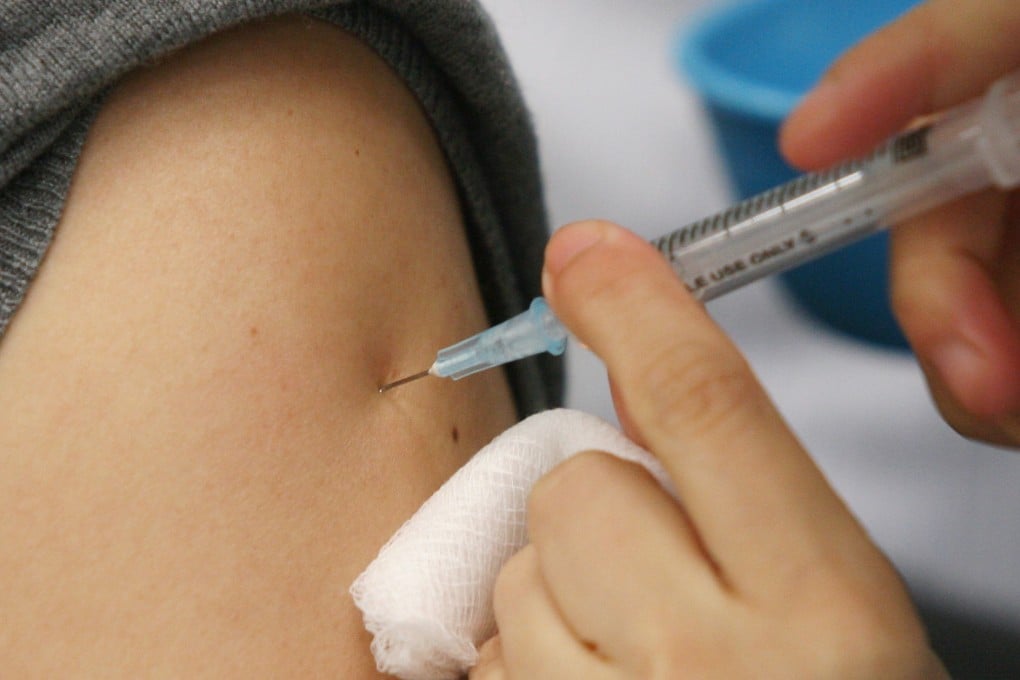Advertisement
Six out of 100 Hong Kong airport workers found to be in danger of catching measles as health authorities tighten controls around vaccination service
- Centre for Health Protection adopts new strategy after results of blood tests come back
- Numbers mean it may only need 9,800 doses of vaccine for 70,000 people that work in airport
Reading Time:2 minutes
Why you can trust SCMP

Hong Kong health authorities have tightened the requirements for their airport vaccination service against measles after blood tests found almost 90 per cent of airport staff were immune to the highly contagious disease.
The Centre for Health Protection came up with the new vaccination strategy to cope with the rising number of infections in the city, with most cases identified at the airport, where some 70,000 people work.
The centre carried out blood tests for 100 airport workers starting from last Friday, after the two vaccination stations at the airport were met with long queues and frustration every day.
Advertisement
Some airport workers said they still wanted a jab, even though they had already been vaccinated.
Test results released on Sunday showed only six of the 100 workers tested were not immune, while the results of eight others were deemed indeterminate.
Advertisement
That means the government might only need 9,800 vaccines for the 70,000 workers, if that ratio applies across the board. However, some 6,000 vaccines have been issued over the past week.
Advertisement
Select Voice
Choose your listening speed
Get through articles 2x faster
1.25x
250 WPM
Slow
Average
Fast
1.25x